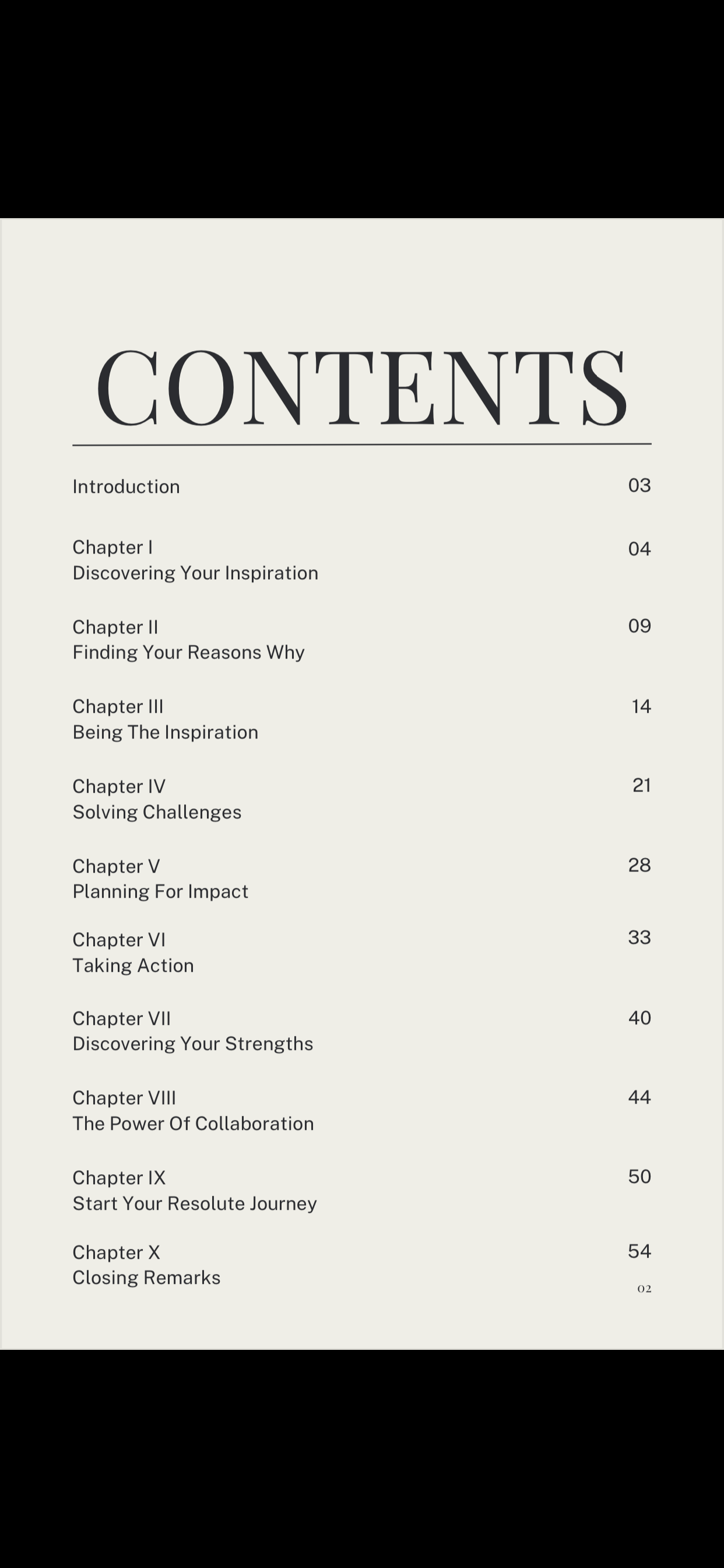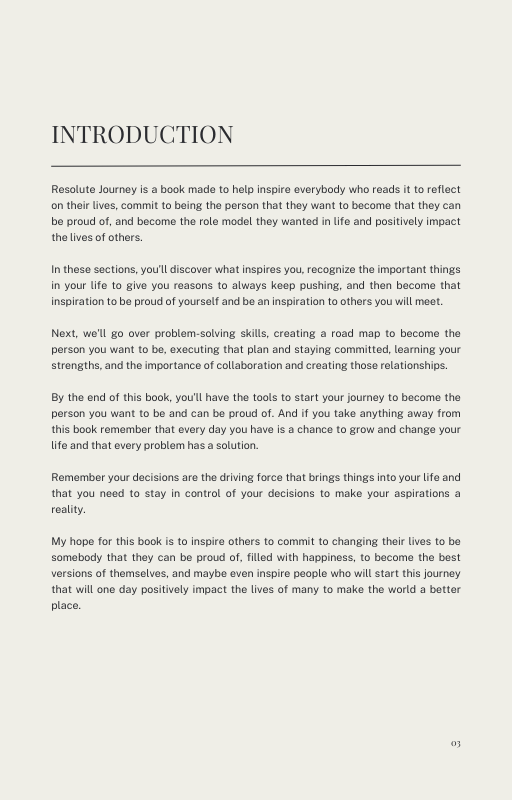In today's fast-paced world, maintaining focus has become a challenging task for many. Distractions are everywhere, from the constant notifications on our devices to the ever-increasing demands on our time. Whether you're a student, a professional, or simply looking to enhance your ability to concentrate, these 10 tips for improving focus can help you stay on track and achieve more. Read all the way to the end for an important bonus tip that can help you focus immediately.
1. Prioritize Tasks
Prioritizing tasks to increase focus is a fundamental strategy for achieving greater productivity and efficiency in our daily lives. In today's fast-paced world, the ability to stay concentrated on what truly matters can make all the difference. When we prioritize tasks, we are essentially determining the order in which we will tackle them, focusing on those that are most important and need immediate attention. This process not only helps us manage our time effectively but also reduces decision fatigue, allowing us to maintain our mental energy and concentration throughout the day.
One of the key benefits of effective task prioritization is that it reduces decision fatigue. When we're faced with a long list of tasks and no clear order of importance, we expend mental energy deciding what to do next. This continuous decision-making can drain our cognitive resources, making it increasingly challenging to stay focused as the day progresses. However, when tasks are prioritized, we know where to direct our attention, eliminating the need for constant decision-making and reducing the risk of mental fatigue, thus enabling us to maintain a higher level of focus.
Furthermore, prioritizing tasks leads to increased efficiency. By concentrating our efforts on high-priority tasks, we can complete them more effectively and with higher quality. This efficiency not only helps us accomplish important work but also frees up time for other activities or well-deserved breaks. In other words, prioritization allows us to maximize our productivity by ensuring that we are dedicating our time and effort to the tasks that matter most, ultimately leading to better results in less time. So, not only does prioritization help us maintain focus, but it also enhances our overall productivity and work quality.
In essence, prioritizing tasks is like creating a roadmap for your day. It helps you decide which path to take and, as a result, prevents procrastination. When you know what needs to be done and in what order, there's less room for uncertainty or hesitation. You're less likely to put off important tasks or engage in time-wasting activities because you have a clear plan in place. By reducing the temptation to procrastinate, task prioritization keeps you on track and enables you to stay focused on completing your most crucial work, which is essential for achieving your goals and maximizing your productivity.
2. Minimize Distractions
Minimizing distractions is a vital strategy for improving focus and productivity in today's digital age. Our lives are filled with various sources of interruption, from constant notifications on our devices to the lure of social media and the chatter of colleagues or family members. Learning to minimize distractions can significantly enhance your ability to concentrate on the task at hand, ultimately leading to more efficient and effective work.
One of the most powerful ways to increase focus is by identifying and reducing distractions. Start by recognizing the primary sources of disturbance in your environment. This could include turning off notifications on your smartphone or computer, closing unnecessary browser tabs, or creating a dedicated workspace that is free from potential interruptions. When you eliminate these distractions, you create an environment that encourages sustained focus.
In addition to external distractions, it's important to address internal distractions as well. This includes managing your own impulses to check your phone or engage in non-work-related activities during designated work time. Techniques such as time blocking can help you allocate specific time periods for focused work while permitting short breaks for addressing these internal distractions. By being mindful of your own behaviors and limiting them during work hours, you can cultivate better self-discipline and ultimately boost your focus.
Moreover, minimizing distractions isn't just about creating a quiet space; it's about building an environment that supports your goals and encourages deep work. Decluttering your physical space, organizing your work tools, and setting boundaries with others are all essential components. For example, if you're working from home, communicate your work schedule to family members to minimize interruptions. An organized and distraction-free environment can help you immerse yourself in your work and increase your overall productivity.
In conclusion, minimizing distractions is a critical skill for anyone looking to enhance their focus. It allows you to create an environment that fosters concentration, whether you're working on an important project, studying for an exam, or simply trying to be more present in your daily life. By recognizing and managing both external and internal distractions, you can significantly improve your ability to stay on track and accomplish your goals efficiently. Remember that it's an ongoing process, and finding what works best for you may require some experimentation, but the rewards of increased focus are well worth the effort.
3. Set Clear Goals
Setting clear goals is a fundamental step in enhancing focus and achieving greater productivity in any aspect of life. Whether you're pursuing academic excellence, striving for professional success, or simply looking to improve your daily routine, having well-defined objectives can serve as a guiding light, helping you concentrate your efforts and maintain your focus.
Goals provide a sense of purpose and direction. When you set clear, specific goals, you establish a roadmap for what you want to accomplish. This clarity helps you prioritize your tasks and stay on track by concentrating on the activities that align with your goals. It also reduces the tendency to get sidetracked by less important or unrelated tasks. For example, if your goal is to excel in a specific subject, your focus will naturally gravitate towards the activities and study materials that are directly related to that subject.
Clear goals also provide motivation. When you have a compelling objective in mind, you're more likely to stay engaged and focused on the task at hand. Achieving your goals becomes a source of inspiration, driving you to overcome distractions and obstacles. This motivation helps you maintain a high level of concentration and persistence, even when faced with challenging or tedious tasks.
Moreover, setting clear goals encourages efficient planning. When you have a well-defined goal, you can break it down into smaller, actionable steps. This process enables you to create a structured plan that outlines how you will achieve your goal, making it easier to allocate time and resources effectively. By having a clear plan, you reduce the likelihood of feeling overwhelmed, as well as the uncertainty about what to do next. This methodical approach allows you to maintain focus on the specific actions needed to reach your desired outcome.
In conclusion, setting clear goals is a foundational strategy for increasing focus and productivity. Clear objectives provide purpose, motivation, and direction, making it easier to prioritize tasks, stay engaged, and plan efficiently. By defining your goals and breaking them down into manageable steps, you create a roadmap for success and reduce distractions, ultimately allowing you to concentrate your efforts on what truly matters. Whether you're aiming for academic excellence, professional success, or personal growth, clear goals are the compass that will guide you on your journey.
4. Manage Your Time
Effective time management is a cornerstone of increasing focus and productivity. In a world filled with numerous demands on our attention, learning to manage our time wisely is essential for achieving our goals and maintaining our concentration on what truly matters. Here, we will explore the importance of time management and how it can significantly enhance your ability to stay focused.
Time management is the practice of allocating your time and resources to tasks and activities in a way that maximizes efficiency and productivity. It allows you to make the most of your available time by ensuring that you focus on high-priority tasks and allocate adequate time for them. When you manage your time effectively, you are essentially taking control of your schedule rather than allowing external factors to dictate how you spend your day.
One of the most significant benefits of effective time management is the reduction of decision fatigue. When you have a well-structured plan for your day, you eliminate the need to continuously make decisions about what to do next. This minimizes the mental effort required for deciding on tasks and helps you maintain your focus. Instead of constantly switching between activities, your schedule guides you, enabling you to allocate your attention more efficiently.
Moreover, effective time management enables you to allocate dedicated periods for focused work. Techniques like the Pomodoro Technique, which involves working in concentrated bursts with short breaks, help you maintain your focus while preventing burnout. By structuring your day in a way that suits your natural rhythms and energy levels, you can ensure that you are at your best during those crucial moments, ultimately enhancing your concentration and the quality of your work.
In conclusion, managing your time effectively is a pivotal strategy for increasing focus. It empowers you to take control of your schedule, reducing decision fatigue and enabling you to allocate dedicated time for focused work. By mastering the art of time management, you can structure your day to align with your priorities and maintain your concentration on the most important tasks, ultimately leading to greater productivity and success in both your personal and professional endeavors.
5. Take Care of Your Health
Taking care of your health is a foundational element in enhancing focus and productivity. It's often overlooked, but your physical and mental well-being play a vital role in your ability to concentrate and perform at your best. In this section, we will delve into the importance of maintaining a healthy lifestyle and how it can significantly boost your focus.
First and foremost, sufficient sleep is crucial for maintaining focus. Sleep is when the brain consolidates memories, processes information, and rejuvenates. When you don't get enough sleep, your cognitive abilities suffer, making it challenging to concentrate, solve problems, and think clearly. To improve focus, aim for 7-9 hours of quality sleep each night. Establish a regular sleep schedule and create a conducive sleep environment, free from disruptions like electronic devices or excessive noise.
A well-balanced diet is another essential component of focus. The foods you consume provide the nutrients necessary for optimal brain function. Omega-3 fatty acids found in fish, antioxidants in fruits and vegetables, and complex carbohydrates can all support cognitive health. Avoid excessive sugar and processed foods, which can lead to energy spikes and crashes, affecting your ability to stay focused. Staying hydrated is equally important, as even mild dehydration can impair cognitive function, making it essential to drink enough water throughout the day.
Physical activity is not only beneficial for your body but also for your mind. Regular exercise increases blood flow to the brain, promotes the release of feel-good chemicals like endorphins, and improves overall cognitive function. Engaging in physical activity can reduce stress and anxiety, two common culprits of distraction and decreased focus. Even a short walk or quick workout can provide a significant mental boost and help you stay attentive to your tasks.
In conclusion, taking care of your health is a fundamental step in enhancing focus. Sufficient sleep, a balanced diet, and regular exercise are crucial for maintaining optimal cognitive function and reducing distractions. By prioritizing your well-being, you can create a solid foundation for improved concentration, greater productivity, and overall success in both your personal and professional life. Remember, your physical and mental health are the cornerstones of your ability to stay focused and achieve your goals.
6. Eliminate Multitasking
Eliminating multitasking is a pivotal strategy for increasing focus and productivity. While many people believe they are being more efficient by juggling multiple tasks simultaneously, research indicates that multitasking can actually hinder concentration and hinder the quality of your work. In this section, we'll explore the importance of focusing on one task at a time and how it can lead to improved concentration and better results.
One of the main reasons to eliminate multitasking is that it divides your attention. When you try to focus on multiple tasks at once, your brain constantly switches back and forth between them, leading to cognitive overload. This continuous shifting not only impairs the quality of your work but also slows you down. In contrast, when you concentrate on one task at a time, you can give it your full attention and effort, leading to faster and more efficient completion of the task.
Multitasking can also lead to increased stress and decreased overall productivity. When you're juggling multiple tasks, it's common to feel overwhelmed, anxious, and exhausted. This stress not only affects your mental well-being but also interferes with your ability to concentrate. Focusing on one task at a time allows you to work more calmly and methodically, reducing stress and improving your overall performance.
Moreover, eliminating multitasking promotes better task management. When you focus on one task, you can allocate your time and effort more efficiently, allowing for better organization and prioritization. By completing one task before moving on to the next, you create a sense of accomplishment, which can serve as a motivator and boost your overall productivity. This approach also helps you better identify the most critical tasks and allocate the necessary resources to complete them, ultimately enhancing your ability to stay focused and reach your goals.
In conclusion, eliminating multitasking is a vital strategy for increasing focus and productivity. It allows you to concentrate on one task at a time, reducing cognitive overload and stress, and promoting more efficient task management. By embracing single-tasking, you can improve the quality of your work, reduce distractions, and ultimately enhance your concentration, leading to better results and a more productive and successful life. Remember that in a world filled with distractions, the ability to focus on one task at a time can be a game-changer for your personal and professional success.
7. Break Tasks into Smaller Steps
Breaking tasks into smaller steps is a highly effective strategy for increasing focus and productivity. When you're confronted with a large, complex project or goal, it can be overwhelming and difficult to maintain your concentration. However, by dividing these significant undertakings into smaller, more manageable components, you can significantly enhance your ability to stay focused and make steady progress.
One of the key advantages of breaking tasks into smaller steps is that it makes the work more approachable. When you're faced with a massive project, it's easy to feel daunted and even tempted to procrastinate. Breaking it down into smaller, actionable steps provides a clear path forward and minimizes feelings of overwhelm. With each completed step, you experience a sense of accomplishment, which can serve as a motivator to keep you focused and energized.
Moreover, smaller steps are easier to prioritize. Instead of trying to tackle a massive project all at once, you can decide which individual step is the most critical to address first. This approach allows you to allocate your time and resources more efficiently, ensuring that you're working on tasks that directly contribute to your overall goal. As you complete each smaller step, you can move on to the next, maintaining a consistent sense of direction and concentration.
Breaking tasks into smaller steps encourages you to create a structured plan for achieving your goals. This plan outlines how you will complete each step, what resources you need, and how much time you should allocate. With this organized approach, you reduce the likelihood of feeling lost or uncertain about what to do next, thereby enhancing your ability to stay focused on the specific actions needed to reach your desired outcome. By dividing your tasks into smaller, more digestible parts, you not only improve your focus but also increase your overall efficiency and effectiveness.
In conclusion, breaking tasks into smaller steps is a powerful strategy for increasing focus and productivity. It allows you to tackle even the most daunting projects with confidence and determination. By providing a structured plan, a sense of accomplishment, and a clear path forward, this approach reduces feelings of overwhelm and improves your ability to concentrate on the essential components of your work. Whether you're working on a long-term project, studying for an exam, or striving to achieve a personal goal, breaking tasks into smaller steps can help you maintain your focus and steadily progress toward your desired outcomes.
8. Stay Organized
Staying organized is a fundamental strategy for increasing focus and productivity. A cluttered and disorganized environment can have a detrimental effect on your ability to concentrate and complete tasks efficiently. In this section, we'll explore the significance of organization and how it can significantly enhance your focus.
An organized workspace is key to improving focus. When your physical environment is cluttered and chaotic, it can create a sense of mental clutter and distraction. Piles of papers, a disorganized desk, or a cluttered digital workspace can divert your attention away from the task at hand, making it challenging to stay focused. By keeping your workspace organized and decluttered, you create a harmonious setting that encourages sustained concentration and creativity.
To improve focus and productivity, it's essential to establish clear systems and routines. An organized approach to task management, scheduling, and goal setting ensures that you have a structured plan to follow. When you know what to do, when to do it, and how to do it, you minimize the mental effort required for decision-making, allowing you to maintain your focus on completing tasks more efficiently. Organizational tools like to-do lists, calendars, and project management software can be invaluable in this regard.
In addition, staying organized allows for better time management. When you have a well-structured plan in place, you can allocate time to specific tasks and projects more efficiently. This helps you avoid procrastination and stay on track with your work. As you complete each task or goal, you experience a sense of accomplishment, reinforcing your motivation and focus. Moreover, organization helps you set clear priorities, ensuring that you're dedicating your time and energy to tasks that truly matter, further enhancing your ability to stay focused on your most important work.
In conclusion, staying organized is a foundational strategy for increasing focus and productivity. An organized environment and clear systems for task management and scheduling create a conducive setting for concentration and efficiency. By eliminating distractions, reducing decision fatigue, and promoting better time management, staying organized empowers you to maintain your focus and accomplish your goals more effectively. Whether you're tackling professional projects, academic assignments, or personal goals, an organized approach can make a substantial difference in your ability to stay focused and achieve success.
9. Use Technology Wisely
Using technology wisely is a critical strategy for increasing focus and productivity in our increasingly digital world. While technology offers countless tools and resources to aid in our work and personal lives, it can also be a significant source of distraction. In this section, we will explore the importance of responsible technology use and how it can significantly enhance your ability to stay focused.
The key to using technology wisely is to leverage its benefits while minimizing its drawbacks. There are numerous apps, tools, and software designed to enhance productivity and concentration. For instance, task management apps, note-taking tools, and time-tracking software can help you stay organized and allocate your time efficiently. By incorporating these technologies into your workflow, you can streamline your tasks, reduce distractions, and increase your overall focus.
On the flip side, it's essential to be mindful of the potential distractions that technology can introduce. The constant barrage of notifications, the temptation of social media, and the allure of endless entertainment can quickly divert your attention away from the task at hand. To increase focus, consider implementing strategies such as silencing non-essential notifications during work hours, using website blockers to limit time spent on distracting websites, and setting specific periods for checking emails and social media. These practices can help you maintain your focus on your work while still harnessing the power of technology for productivity.
Furthermore, technology can be a valuable tool for enhancing your knowledge and skill set, as long as you use it intentionally. Access to online courses, educational apps, and e-books allows you to continue learning and growing in your field. By setting aside dedicated time for learning and professional development, you can harness the power of technology to expand your knowledge and abilities, ultimately making you more effective in your work. This intentional use of technology can provide an additional layer of focus, as it aligns with your personal and professional growth goals.
In conclusion, using technology wisely is a crucial strategy for increasing focus in the digital age. It's essential to harness the benefits of technology while mitigating its potential distractions. By incorporating productivity-enhancing tools, reducing distractions, and using technology for intentional learning and growth, you can significantly improve your ability to concentrate on your work and achieve your goals. Remember, technology is a tool, and how you use it can either enhance or hinder your focus and productivity.
10. Practice Mindfulness
Practicing mindfulness is a profound and time-tested strategy for enhancing focus and overall well-being. It involves deliberately bringing your attention to the present moment, without judgment or attachment to distracting thoughts. By cultivating mindfulness, you can significantly improve your ability to concentrate, manage stress, and achieve a state of mental clarity and heightened focus.
Mindfulness promotes greater self-awareness, allowing you to recognize the thoughts and feelings that may lead to distraction or anxiety. By acknowledging these distractions without judgment, you can choose to refocus on the task at hand. This self-awareness helps you develop emotional intelligence, enabling you to control your responses to stress and external factors that might disrupt your concentration.
Mindfulness meditation is an effective practice to enhance focus. Regular meditation sessions, even as short as 10-15 minutes, can help you build the mental muscle to sustain attention. By focusing on your breath or a specific point of attention, you learn to rein in your thoughts and maintain your concentration, which can be applied to tasks and projects in your daily life.
In addition, mindfulness can reduce stress and anxiety, which are common factors contributing to a lack of focus. When you're anxious or stressed, it's challenging to stay concentrated on a task. Mindfulness practices, such as deep breathing or body scans, can help you remain calm, centered, and resilient in the face of stressors. This newfound emotional balance, in turn, enhances your capacity to stay focused and perform at your best.
In conclusion, practicing mindfulness is a transformative strategy for increasing focus and productivity. It enables self-awareness, mental resilience, and emotional balance, all of which are essential for maintaining concentration in a world filled with distractions and stressors. By incorporating mindfulness into your daily routine, you can harness its benefits to achieve a heightened state of focus, improved productivity, and an overall sense of well-being. Remember that mindfulness is a skill that can be cultivated over time, and the more you practice, the more profound the impact on your focus and mental clarity.
Bonus Tip: Stay Hydrated
Now for our bonus tip, let's explore the vital role that staying hydrated plays in increasing focus and cognitive performance.
Hydration is often an overlooked aspect of maintaining focus, yet it's a fundamental factor in the optimal functioning of your brain and body. Dehydration can have a significant impact on your cognitive abilities, leading to difficulties in concentration, memory, and mental clarity. To enhance your focus and overall productivity, it's essential to ensure you're consistently hydrated throughout the day.
Water is crucial for the brain's functionality. It helps transport nutrients and oxygen to brain cells, facilitates electrical signaling between neurons, and flushes out waste products. When you're dehydrated, these processes are compromised, and your brain may not function at its best. This can lead to difficulties in maintaining focus and processing information, making it even more critical to maintain proper hydration for optimal cognitive function.
Proper hydration can also affect your mood and overall well-being. Dehydration can lead to feelings of fatigue, irritability, and decreased alertness, all of which are detrimental to focus. By maintaining adequate hydration, you can stay more alert, motivated, and in a better mental state to tackle tasks and maintain concentration. Sipping water regularly throughout the day can be a simple yet effective way to boost your cognitive performance and overall productivity.
In conclusion, staying hydrated is a crucial bonus tip for increasing focus. Hydration is vital for the optimal functioning of your brain and body, and even mild dehydration can lead to cognitive impairments that hinder your ability to concentrate. By making a conscious effort to drink enough water throughout the day, you can support your cognitive function, maintain better mood and alertness, and ultimately enhance your ability to stay focused and productive. Remember that staying hydrated is a simple and readily available tool to sharpen your cognitive edge and achieve your goals.
Conclusion
Improving your focus is a journey that requires dedication and practice. By following these 10 tips, you can enhance your productivity and make the most of your time. Remember that everyone is different, so experiment with these strategies to find the combination that works best for you. With patience and persistence, you'll be on your way to a more focused and productive you.




